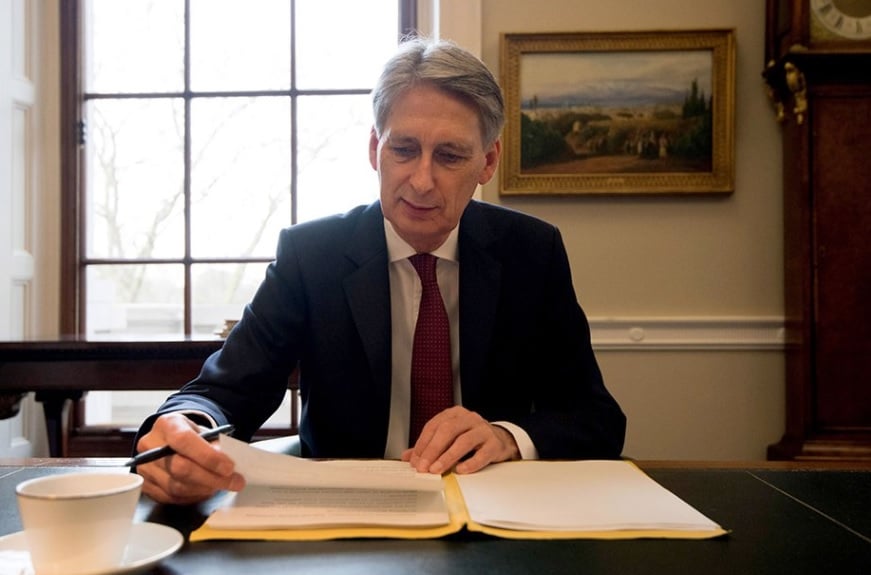The UK government is to mobilise hundreds of millions of pounds of new investment into vehicle charging infrastructure as it bids to take the lead in driverless, electric vehicles.
A new round of funding, support and investment in R&D research was unveiled within today’s Autumn Budget, with chancellor Philip Hammond lauding the technology’s potential to revolutionise transport.
However any hopes of the budget including more support for renewables technologies have been dashed, with the government instead electing to postpone any new levies for low carbon technologies until 2025.
“There is perhaps no technology as symbolic of the revolution gathering pace around us as driverless vehicles.
“Our future vehicles will be driverless, but they’ll be electric first. And that’s a change that needs to come as soon as possible.
“So we’ll establish a new £400 million charging infrastructure fund, invest an extra £100 million in Plug-In-Car Grant, and £40 million in charging R&D,” Hammond said at the despatch box.
The chancellor also confirmed that the government intends to clarify the law preventing anyone charging their EV at work from facing a benefit-in-kind charge from next year.
The Budget documents, published after the chancellor had finished speaking, reveal the extent of the package, highlighting the government’s intention to regulate to support the wider roll-out of charging infrastructure and invest £200 million – to be matched by private investment – into a new £400 million ‘Charging Investment Infrastructure Fund’.
The government has also committed to electricity 25% of cars in central government department fleets within the next five years.
A further £100 million will also be added to guarantee the continued operation of the plug-in car grant out to 2020 to help consumers purchasing battery electric vehicles.
However this government has a record of recycling existing money when it comes to EV pledges.
Last year’s Conservative Party election manifesto included a promise to spend £600 million by 2020 in a bid to ensure that every car and van in the UK be zero-emission by 2050.
The party later confirmed to Clean Energy News that it was merely the same funding promised at the election in 2015, with no new funding on offer.
Meanwhile, the government had been expected to confirm details surrounding the future of the Levy Control Framework – the mechanism used to control the amount of cost passed onto consumers to support renewable energy technologies – within today’s Budget announcement.
While Hammond was silent on the topic during his speech, documents published by HM Treasury afterwards confirm that the government would not be issuing any new low carbon electricity levies until the “burden” of current costs is falling, expecting this to be in 2025.
More to follow…






